SAMA Homes
Brass Spice Box- Large with Tin coating & Plate
Brass Spice Box- Large with Tin coating & Plate
20 in stock
Couldn't load pickup availability
Masala box is the common thread that connects our varied cuisines cutting across cultures and region!
brass as spice container is to preserve the rich anti-oxidant propertiesDays we can still remember when our grandmother opened the nice compact brass masala dabba (Anjaraipetti) to concoct a mixture of spices for tadka which adds the special taste and memories to the food.
Sama Homes in collaboration with artisans of Gujarat bring you these exquisitely hand-crafted masala dabba created based on customer inputs.
SKU:SH-ZA-BRL03
❓ Have a specific question?
From shipping to sustainability, we have answers. Check our FAQ →
You Might Also Like in Dynamic Related Products
Explore Related Categories
- Brand: View all SAMA Homes Products
- Category: See more Brass Kitchen Storage Containerss
- Collection: Browse Dynamic Related Products
- Collection: Browse Premium Brass and Copper Spice Boxes, Daal Boxes and Kitchen Storage Containers
- Collection: Browse Sama Homes' Brass Collection
- Collection: Browse 🌿 Sustainable Valentine's Gift Sale - 30% OFF + Free Shipping! 🌟
Browsing our catalog of 16,000+ authentic items. View Full Catalog.
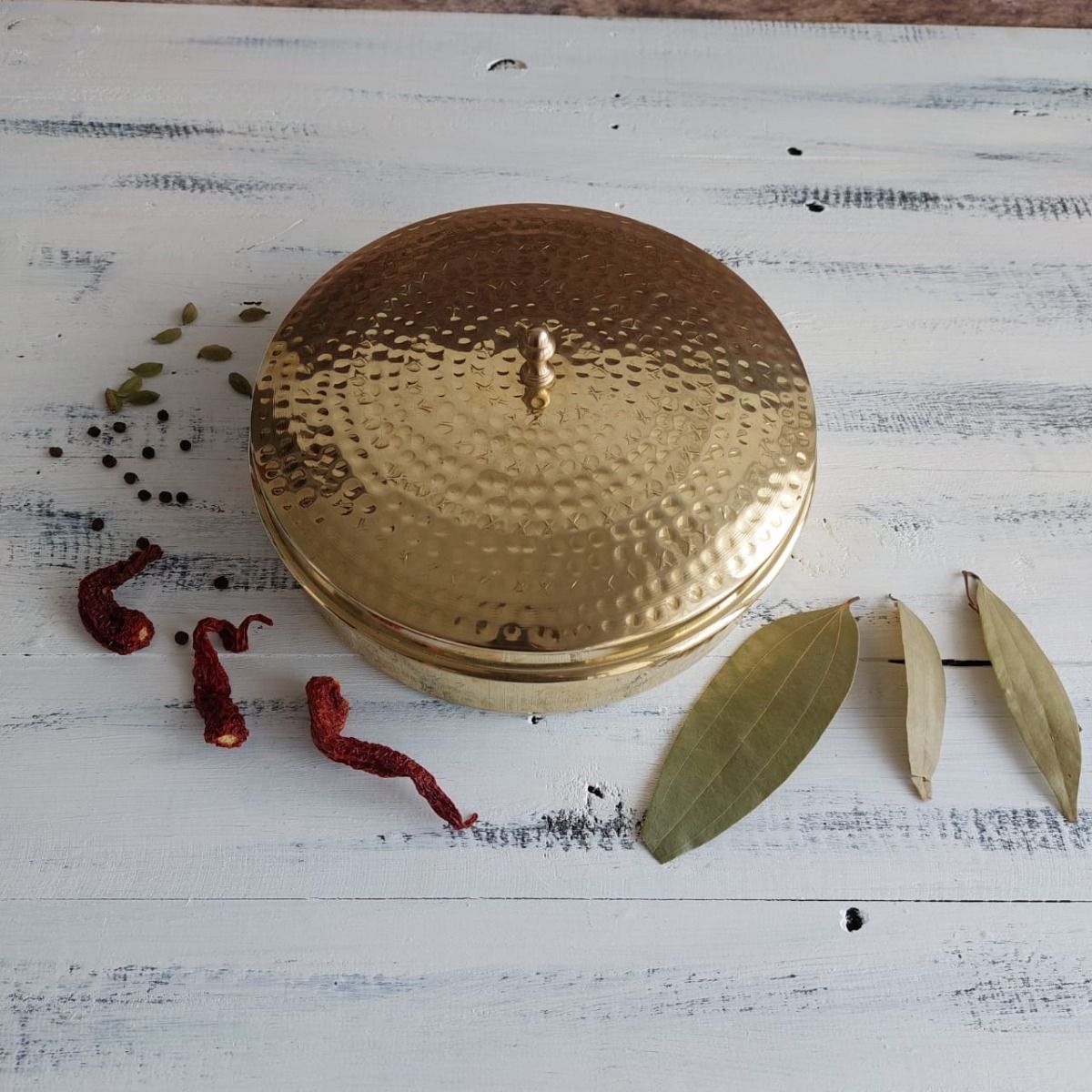
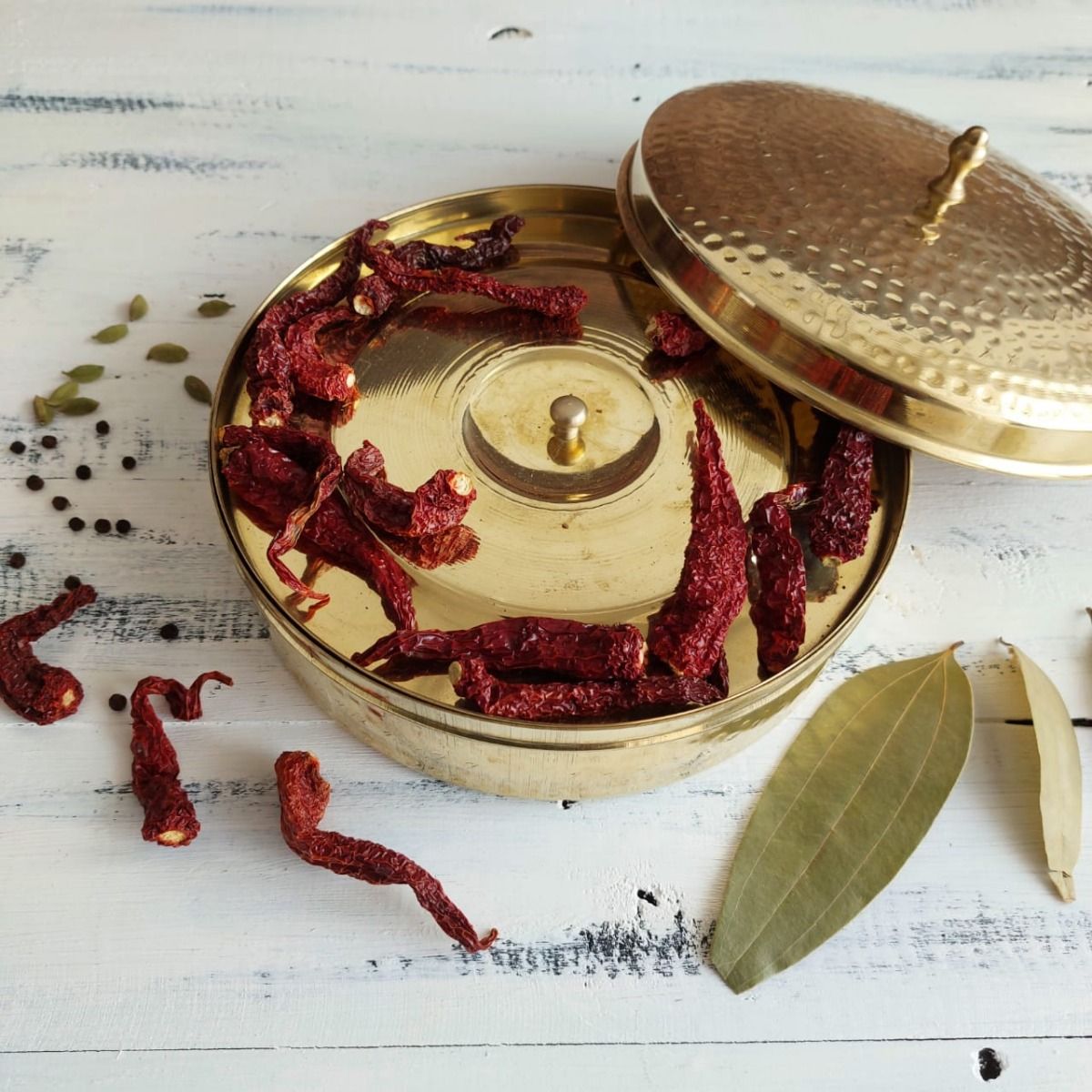
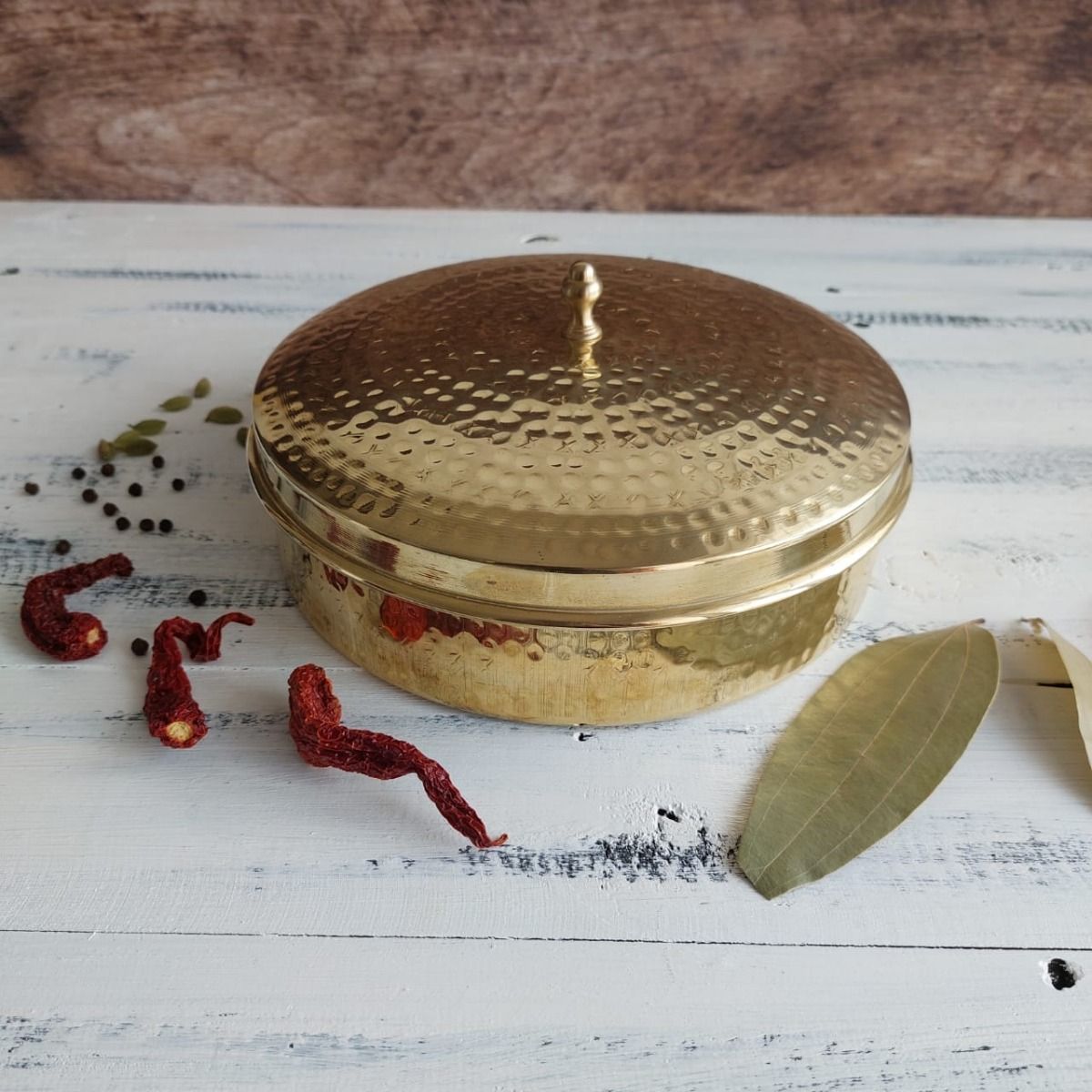
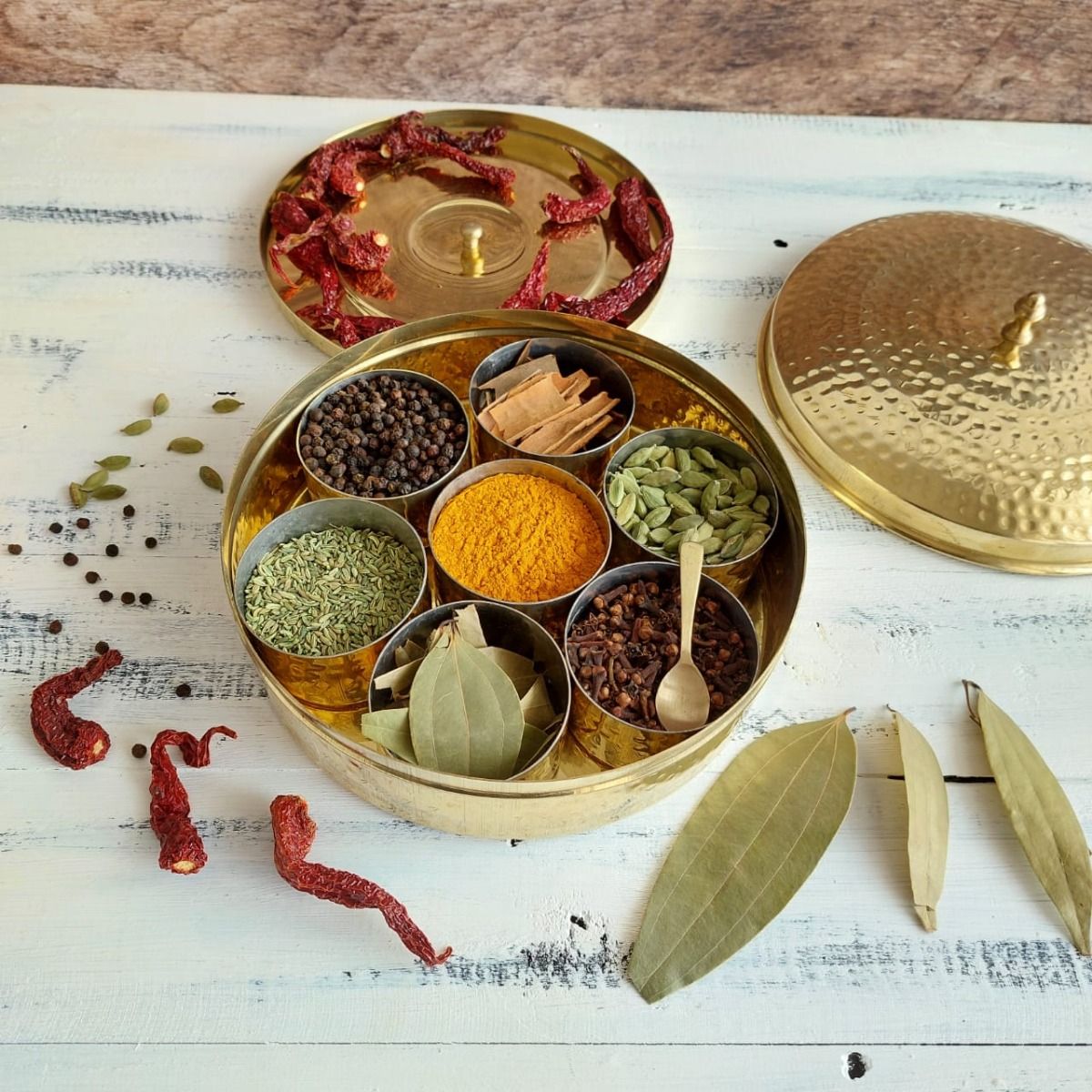
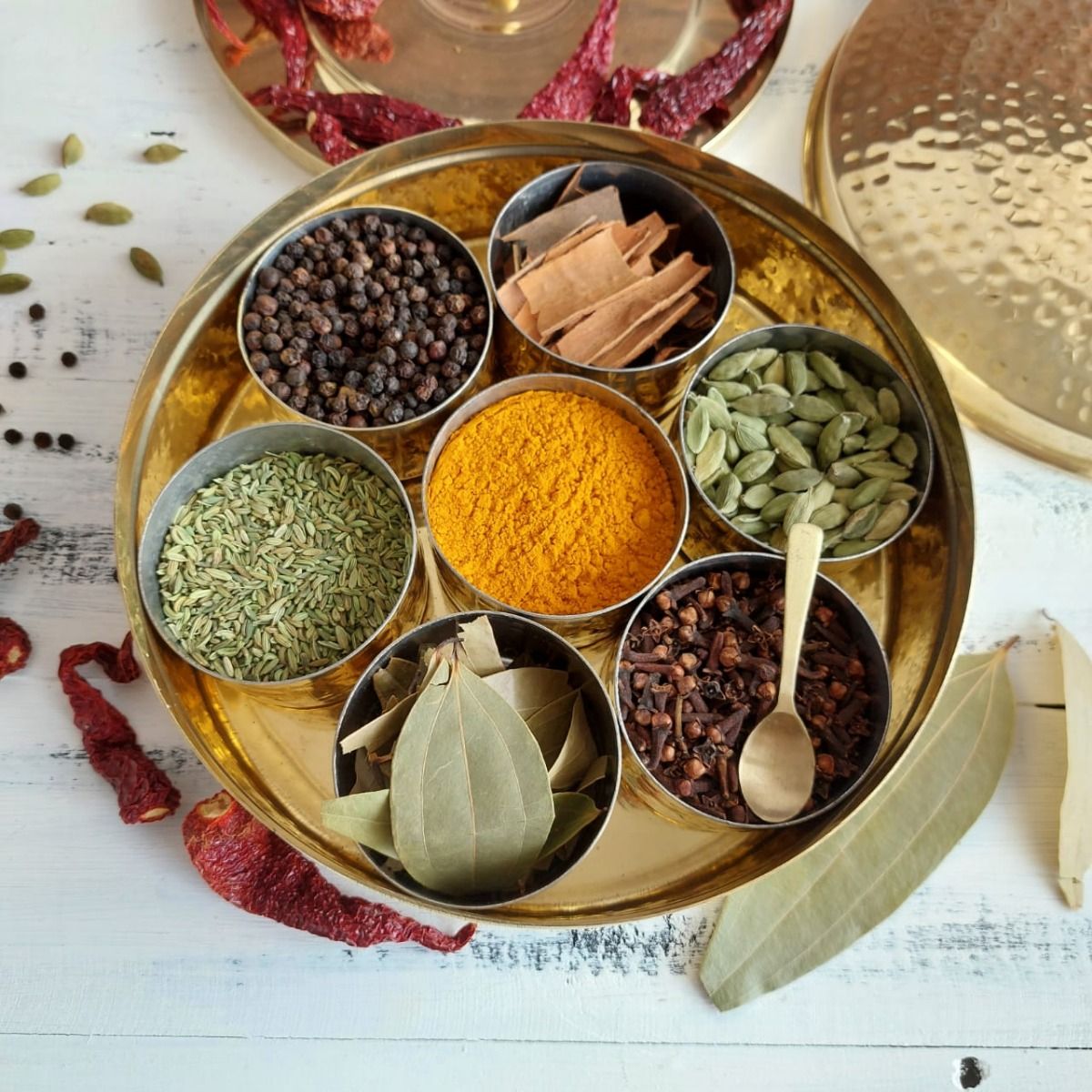
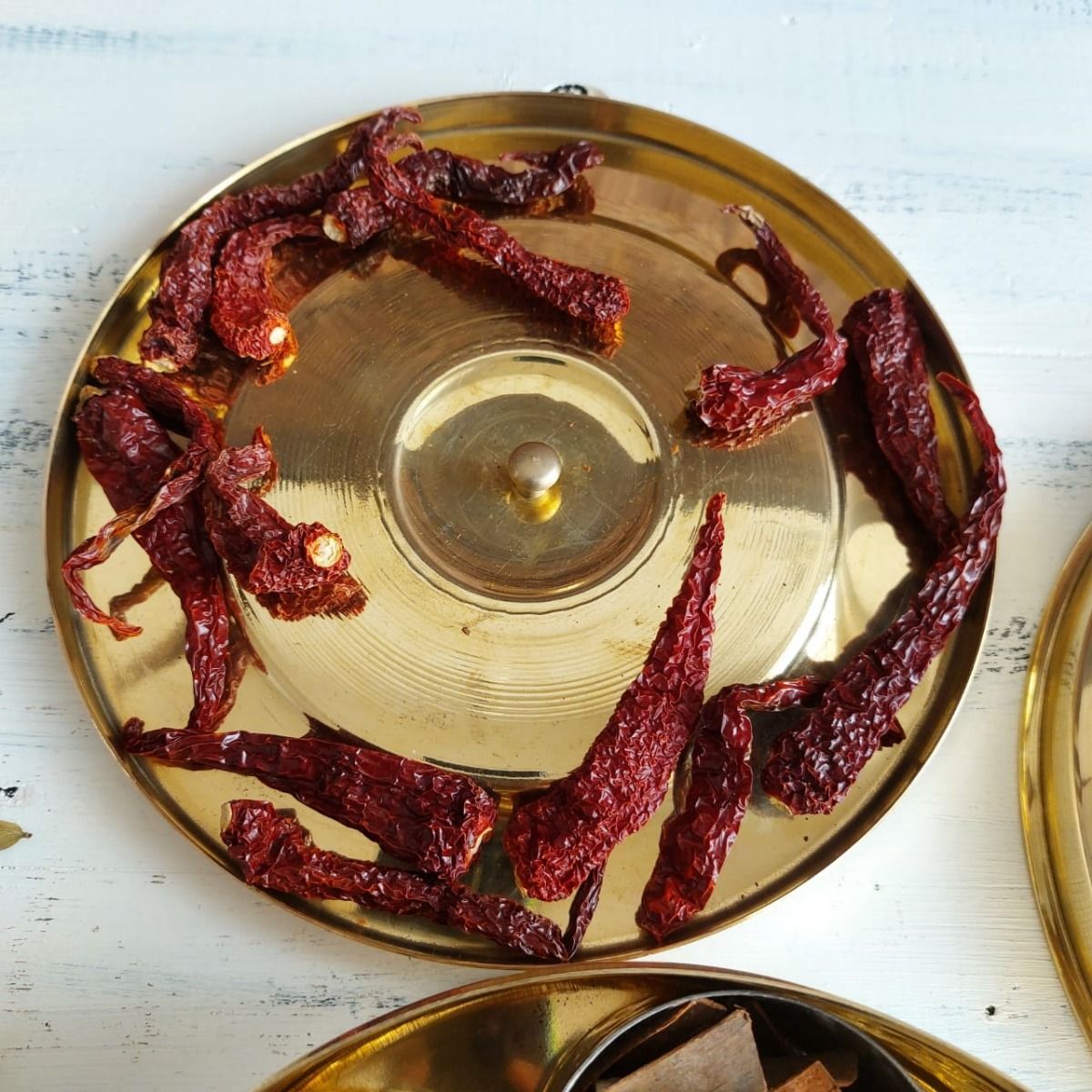
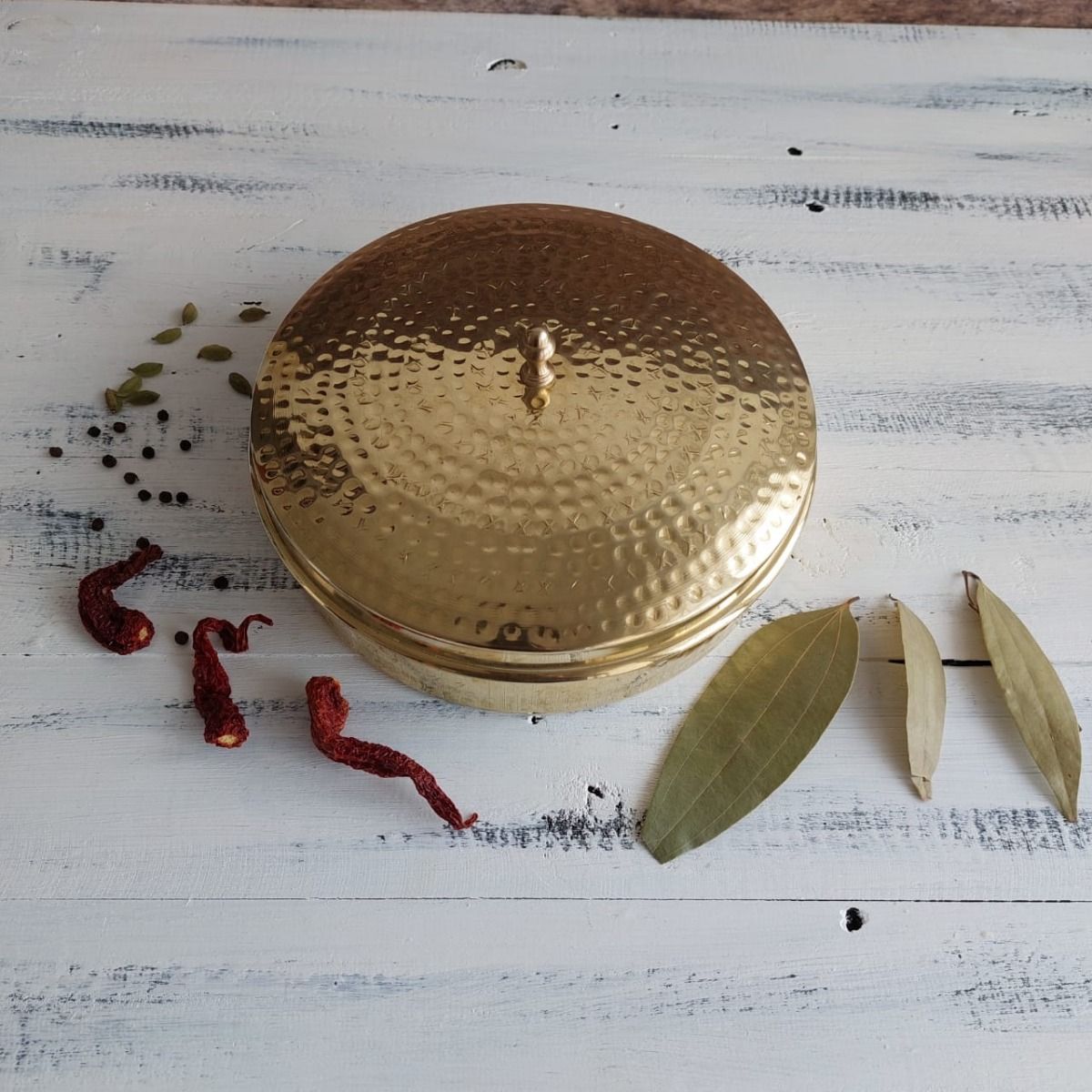

Brass Utensils: A Sustainable Kitchen Choice
Brass, an alloy of copper and zinc, offers a surprisingly eco-friendly option for a variety of household items. Here's how brass contributes to a more sustainable lifestyle. Looking for ways to green your kitchen? Consider brass utensils! These beautiful and functional tools offer surprising sustainability benefits.
Collapsible content
Benefits of Brass Utensils
- Long-lasting Durability: Brass is a robust metal that can last for generations with proper care. Unlike disposable or flimsy utensils, brass stands the test of time, reducing waste and the need for frequent replacements.
- Reduced Landfill Impact: By choosing durable brass, you divert utensils from landfills, contributing to a cleaner environment.
- Natural Antibacterial Properties: Brass possesses inherent antibacterial properties, which can be beneficial, especially for frequently used cooking tools.
- Heat Conductivity: Brass conducts heat efficiently, ensuring even cooking and potentially reducing cooking times, which can save energy.
How Brass Utensils Reduce Your Carbon Footprint
- Lower Production Footprint: Compared to virgin materials, recycled brass requires less energy to produce, leading to lower greenhouse gas emissions.
- Less Waste, Less Transportation: Durable brass utensils minimize the need for frequent replacements, reducing waste generation and the environmental impact of transportation for new products.
- Multi-generational Use: Brass utensils can be passed down through families, further reducing the need for new production and its associated carbon footprint.
Sustainable Considerations
- Tin Lining: For acidic foods, choose tin-lined brass utensils. The lining protects food from reacting with the brass and prevents metallic taste. Unlined brass is best for dry goods or non-acidic foods.
- Proper Care: Handwashing and occasional polishing keep brass utensils looking their best and extend their lifespan, maximizing their sustainability value.
Embrace a Greener Kitchen
By incorporating brass utensils into your kitchen routine, you're not just adding a touch of elegance, you're making a conscious choice for a more sustainable future. So, ditch the disposables and embrace the beauty and longevity of brass!








